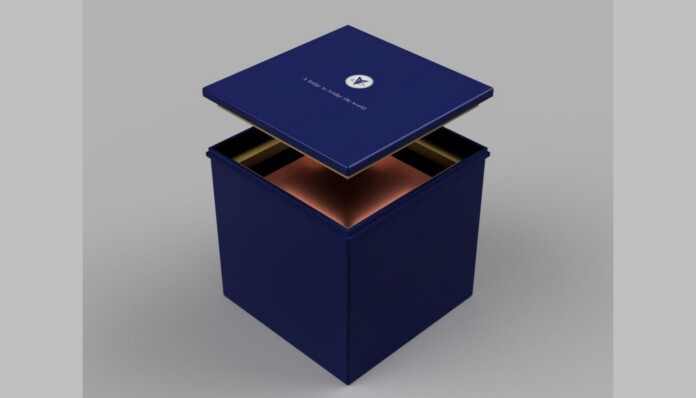
Posted on 04/27/2025 7:47:49 PM PDT by Red Badger
Refrigeration just got a sustainable upgrade, and it didn’t come from a Silicon Valley startup or a government lab — it came from the brilliant minds of three teenagers. These young innovators recently won the 2025 Earth Prize for creating a refrigerator that runs on just salt and water. That’s right — no electricity, no fossil fuels, just simple science and groundbreaking ingenuity. Their invention isn’t just a clever science fair project — it’s already being deployed in hospitals to safely store medicine and even organs. The potential applications in developing nations, disaster zones, and remote areas are enormous. This is the kind of story that gives us real hope for the future.

Big congratulations to Dhruv Chaudhary, Mithran Ladhania, and Mridul Jain!
On this episode of The Hidden Lightness, let’s dive into this incredible story that’s making waves across the globe — and for good reason. At a time when the world is facing energy shortages, environmental crises, and growing inequality in access to basic healthcare and food, these teens are proving that the next generation isn’t just aware of the issues — we’re watching them solve them.
A Refrigerator Powered by Chemistry, Not Cords
The concept is beautifully simple and shockingly effective. By combining salt and water in a carefully engineered chamber, the device absorbs heat and creates a cooling effect. It’s based on endothermic reactions — something high school chemistry students learn early on. But what sets this project apart is the design’s practicality and accessibility. No electricity means this fridge can operate anywhere, anytime. It’s lightweight, affordable, and perfect for places where power grids are unreliable or nonexistent.
That’s a game-changer for rural villages, refugee camps, or communities struck by natural disasters. When the power goes out, life-saving medicine still needs refrigeration. Vaccines must be kept cold, and donor organs must be preserved. With over 200 units already headed to hospitals, this isn’t theoretical — it’s real, it’s here, and it’s saving lives.
Innovation Is Alive and Well in the Next Generation
Let’s pause for a moment and appreciate what this represents. In an age where youth are often dismissed as distracted or disinterested, stories like this are a powerful reminder that young minds are not only engaged — they’re innovating at a world-class level. The Earth Prize is no small accolade. It’s awarded to young people tackling the planet’s most pressing environmental issues. And these teens didn’t just win — they blew the judges away with an invention that could truly reshape global health and food security.
This is a shining example of how the next generation is stepping up to solve the problems we’ve failed to fix. They’re combining creativity with science, compassion with practicality. It’s more than hope — it’s proof that the future is already being built by those willing to take bold, unconventional steps.
A Brighter Future, Powered by Ideas
Think about the direction we’re heading. For all the division, dysfunction, and despair we sometimes see in the world, young people continue to surprise us with brilliance, empathy, and a drive to make things better. It’s not just feel-good fluff — it’s real innovation, backed by action.
As we look to the future, it’s clear that solutions to some of our toughest challenges won’t just come from top-down institutions or multi-billion-dollar corporations. They’ll come from classrooms, communities, and curious minds like those of the teens behind this revolutionary fridge. If they can solve one of the oldest problems in modern civilization — how to keep things cold without power — imagine what else is possible.
Join the Movement Toward Real Solutions
So here’s the takeaway: the future is in good hands. These teens didn’t wait for someone else to fix the problem. They took initiative, embraced science, and created something truly transformative. And their work is already making a tangible difference.
At The Hidden Lightness, we’re here to highlight exactly this kind of story — where innovation meets compassion, and where young people are lighting the way forward. Tune in to hear the full breakdown of how this fridge works, what it means for the world, and why stories like this remind us that real progress doesn’t always start in a boardroom — it can start in a high school lab.
Articles quoted in the show:
Teens win 2025 Earth prize for refrigerator that runs on salt–200 headed to hospitals for chilling medicine

A digital mockup of a Thermavault – credit, Dhruv Chaudhary, Mithran Ladhania, and Mridul Jain, supplied From India comes the story of three teen inventors who were looking to improve rural healthcare by creating a portable fridge that needed no electricity or coolant fluids.
The result of their inspiration is a small, salt-cooled fridge that needs neither a power outlet nor a battery, but rather cools down passively as the salts dissolve in water.
Calling it “a fridge to bridge the world,” the Thermavault can use different combinations of salts to keep the contents at temperatures just above freezing or below it. Some vaccines require regular kitchen fridge temps, while others, or even transplant organs, need to be kept below freezing, meaning this versatility is a big advantage for the product’s overall market demand.
Dhruv Chaudhary, Mithran Ladhania, and Mridul Jain are all children of physicians or medical field workers in the state of Indore. Seeing how difficult it was to keep COVID-19 vaccines viable en route to countryside villages hours outside city centers in tropical heat, they wanted to create a better, portable solution to keeping medical supplies cool.
Because salt molecules dissolve in water, the charged ions that make up the salt molecules break apart. However, this separation requires energy, which is taken in the form of heat from the water, cooling it down.
Though the teen team knew this, it remained a challenge to find which kind of salt would have the optimal set of characteristics. Though sodium chloride—our refined table salt—is what we think of when we hear the word “salt,” there are well over one-hundred different chemical compounds that classify as salt.
“While we did scour through the entire internet to find the best salt possible, we kind of just ended up back to our ninth-grade science textbook,” Chaudhary told Business Insider.
Indeed, the professors at the lab in the Indian Institutes of Technology where they were testing Thermavault’s prototype were experimenting with two different salts which ended up being the best available options, a discovery made after the three teens tested another 20, none of which proved viable.
These were barium hydroxide octahydrate and ammonium chloride. The ammonium chloride alone, when dissolved, cooled the water to between 2 and 6 degrees Celsius (about 35 to 43 degrees Fahrenheit) perfect for many vaccines, while a dash of barium hydroxide octahydrate dropped that temperature to below freezing.
“We have been able to keep the vaccines inside the Thermavault for almost 10 to 12 hours,” Dr. Pritesh Vyas, an orthopedic surgeon who tested the device at V One hospital in Indore, said in a video on the Thermavault website.
Designing a prototype, the teens have already tested it in local hospitals, and are in the process of assembling another 200 for the purpose of testing them in 120 hospitals around Indore to produce the best possible scope of use and utility data for a product launch.
Their ingenuity and imagination won them the 2025 Earth Prize, which came with a $12,500 reward needed for this mass testing phase.
Cheaper to drop a generator, a Jackery, and some fuel (or solar panels), instead of 50 lbs. of salt every day.

That’s what I thought of immediately. Been done for a long time!
A portable cooler with dry ice would be cheaper and produce no chemical waste.
This idea is only several thousand years old.
The pot in pot refrigerator or Zeer.
So it’s a bit like a gas refrigerator, but you use the salts once and then throw the brine out and buy more salts?
mark
Yep… that was my first thought also. Just another application of a VERY old idea.
Boat beer cooler
How different is this from a chemical cold pack where you break a glass vial and mix it around?
Different principle. The “pot in pot refrigerator” or Zeer uses evaporative cooling. Evaporation requires energy (in the form of heat) to change the liquid into a vapor, drawing that heat from the environment or the remaining liquid, thus lowering the temperature.
Can you dry out the salts and use them again?
“Can you dry out the salts and use them again?
Yes absolutely salt dissolved into water, is endothermic you can reverse this by heating the brine and paying the energy debt needed to fuse the salt back to its original ionic bonded form. Cool it to room temp and add more water the process should be reversible thousands of times. Rural and disaster areas will all have something to burn under the used pot of salt water this is the true utility of this.
Yeah, they may be good at that sort of thing but but I’ll bet they can’t name the 97 different genders like American students can.
Yes....................
BUT CO2 that dreaded pollutant!.......................
It’s hard to make ICE cream when your coldest temperature is 35 F. ICE cream needs to get below 32 F.
This idea is great for a temporary situation, likely less than a day. It requires significant quantities of barium hydroxide octahydrate or ammonium chloride - not exact something just sitting around in your kitchen cabinets.
Disclaimer: Opinions posted on Free Republic are those of the individual posters and do not necessarily represent the opinion of Free Republic or its management. All materials posted herein are protected by copyright law and the exemption for fair use of copyrighted works.